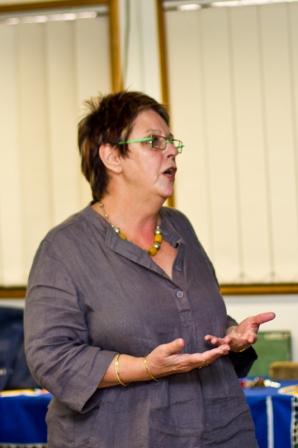
Rhodes University has unveiled a first of its kind postgraduate research programme to assist postgraduate students in engaging with various theoretical approaches, data collection methods and methods of analysis.
This is in accordance with the Rhodes strategy to expand its postgraduate numbers by 400 students over the next three years, bringing postgraduate enrolments to between 29 and 30% of the entire university.
Professor Chrissie Boughey, Dean of Teaching and Learning at Rhodes, says the programme is also in line with Rhodes’ status as a one of the research intensive universities identified as such through Research produced by the Centre for Higher Education Transformation in 2010.
According to Prof Boughey, until this year, support for postgraduate studies at Rhodes has mostly been provided at departmental level.
Some postgraduate programmes are taught, such as coursework masters and honours programmes and in addition, departments run seminars and various other programmes to help their postgrads.
All postgrads conducting research are assigned a supervisor who works with them to produce the research.
Rhodes University’s Vice-Chancellor Dr Saleem Badat has argued for the need for a cross faculty programme that familiarises students with the challenges and dilemmas of research production.
Dr Badat’s proposal included 14 suggestions of a way forward which will be vital to the fulfilment of the postgraduate increase and was presented to Faculties in 2011.
One of these strategies involves an institution level course which will build on existing initiatives aimed at postgraduate development at faculty and departmental level.
Prof Boughey says the 2012 Postgraduate Orientation Programme is a first stab at this course.
“If we are growing at postgraduate level - if this is where our strategic focus is - then we need to ensure the quality of learning experiences of our postgraduate students,” she said.
The new Postgraduate orientation programme operates at various levels including engagement with theory about what can be counted as knowledge/truth/reality and how that knowledge/truth/reality can be known.
A third level deals with more practical issues that includes the use of Nvivo, the qualitative data analysis software, and writing the thesis or proposal.
The Programme also aims to address postgrad issues and concerns, and an opportunity to socialise through events organised by the Postgraduate Liaison Committee after each session.
The second level offers engagement with research methods - interviewing, using surveys and so on. These sessions are led by Rhodes University staff members such as Dean of Student, Dr Vivian de Klerk, who is an expert on the use of surveys in research.
Story Sarah-Jane Bradfield
Picture by Adrian Frost
